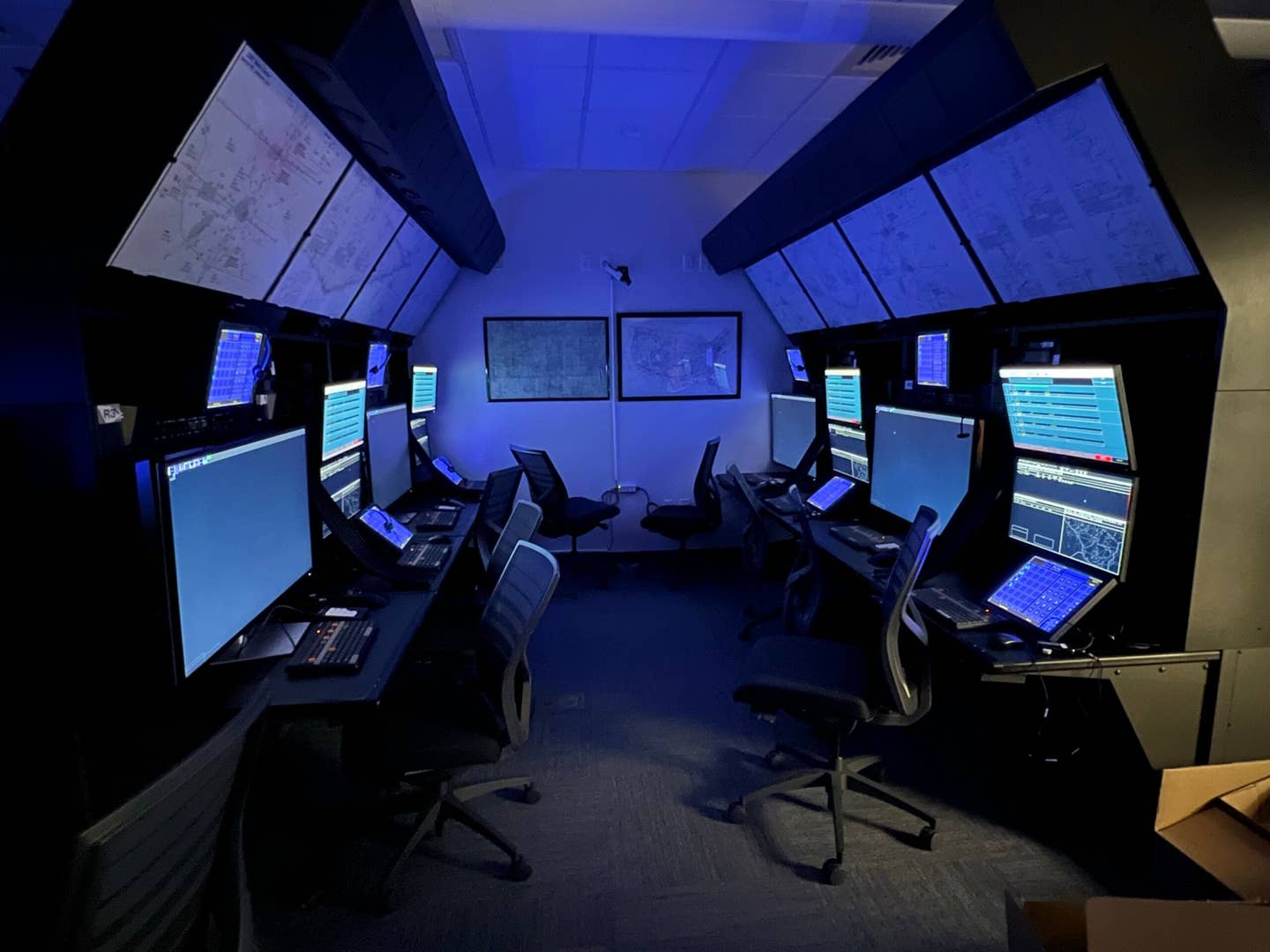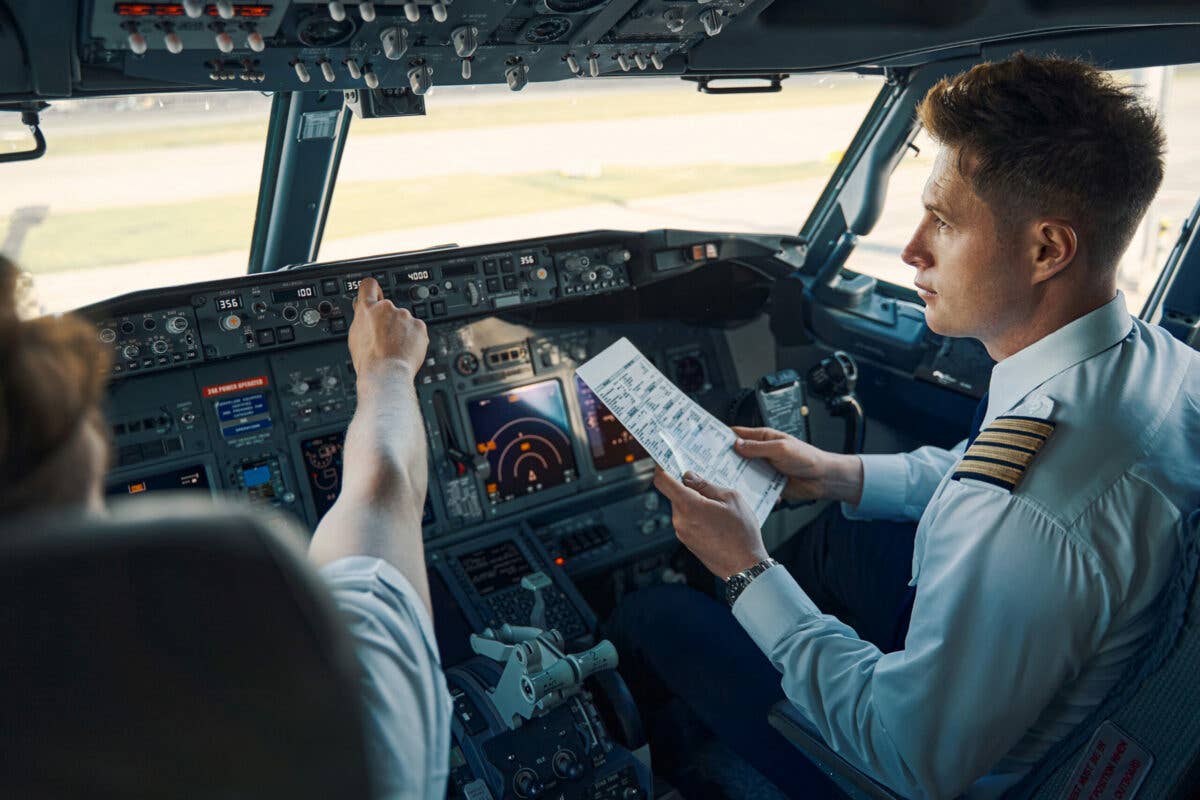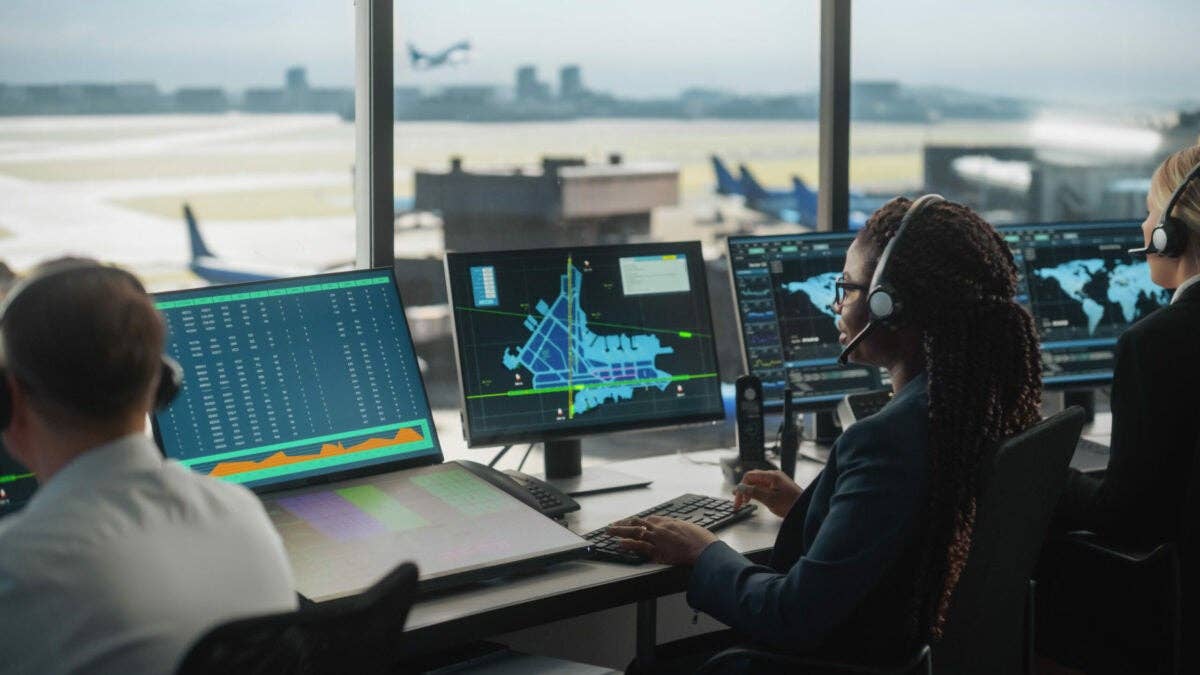Flight Attendant Career Paths Outside of an Airline
If you’re thinking about hanging up your flight attendant wings, these unexpected jobs could be the perfect next step.

Your unique experience as a flight attendant can open all kinds of doors when you leverage it correctly. [Credit: Shutterstock]
For those who love to travel, the role of a flight attendant can be a dream job. Flight attendant careers offer a unique chance to see the world while making an income.
Flight attendants are customer service and safety professionals who work on board aircraft. They are responsible for maintaining a safe and welcoming environment for passengers flying on commercial and private airplanes. From serving drinks to directing emergency evacuations, being a flight attendant is a highly active and public-facing job.
While constant travel is a great fit for some people, the demanding schedule and physical activity required of a flight attendant can be challenging. Some may get into it for the travel benefits only to realize the lifestyle is not a good fit. Others may enjoy the job, but eventually want to transition to work that allows them to be at home or provides new learning opportunities.
Being a flight attendant can help develop a wide variety of personal and professional skills that are valuable in other types of work. For flight attendants ready to expand into a new career, leaning into these strengths creates a solid foundation for the job search ahead.
Transferable Skills of Flight Attendants
Flight attendants need to have certain skills to be successful in their work. Some qualities may come more naturally, but most can be learned and developed.
Customer service and communication
Being able to communicate effectively is an essential part of being a flight attendant. While communication is obviously important in emergencies, interpersonal skills come into play in everyday interactions with crewmates and passengers. Flight attendants must be able to relay important information to the pilots and crew, as well as keep customers informed in a professional and caring manner.
The best flight attendants know how to work with diverse personalities. They respond to customer concerns with professionalism and put passengers at ease. They are able to balance dual priorities of providing excellent customer service and maintaining a safe environment for those on board.
Safety and security
Flight attendants are responsible for passenger safety during flight. They are trained on emergency procedures and safety protocols so they can respond quickly and act appropriately in high-stress scenarios. From medical emergencies to disorderly passengers, flight attendants are skilled in remaining calm and collected in the face of conflict.
Adaptability and flexibility
Those of us in the aviation industry like to say that the only consistency in aviation is change. Flight crews have to be adaptable to changing schedules, unexpected delays, and fast-paced environments. No two days at work are identical for a flight attendant. Employees who can learn to adapt will have a much better time than those who need a strict and consistent routine.
Even when everything is going according to plan, the lifestyle of a flight attendant requires a high level of flexibility. A classic nine-to-five schedule is relatively unheard of in flying jobs. Even the most consistent flight attendant schedules will have varying check-in times, changing gates, and last-minute cancellations. In aviation careers, it’s a good idea to expect the unexpected.
Time management and organizational skills
When serving an airplane full of hundreds of people, time management is crucial. Teamwork among crewmembers can make or break an inflight service. It’s up to the individuals to perform their assigned tasks correctly and on time for a successful flight.
It’s also incredibly important for flight attendants to be organized. Flight attendants are required to have certain items with them at all times while they are working. Losing an ID badge or missing a phone call from crew scheduling can be a serious offense.
Reassignments can happen without warning, particularly for reserve flight attendants at major airlines. A flight attendant who thought they were going to Hawaii might be needed at the last minute to work a flight to Alaska. They must show up on time and thoroughly prepared for any scenario.
Travel essentials for staying organized like a pro:
- TUMI Alpha Continental Expandable Carry-On Luggage
- TravelPro Pilot Expandable Carry-On Rollaboard
- Eagle Creek Pack-It Compression Packing Cubes
Career Paths Outside an Airline
Not all flight attendants will want to continue flying until retirement. For flight attendants who are ready to hang up their wings and do something closer to home, the skills they’ve honed while flying can serve them well in other careers.
Hospitality and tourism
A natural career evolution for flight attendants could be staying in the travel and tourism industry in another capacity. Many hotels, resorts, and restaurants value employees who prioritize customer service and are passionate about hospitality. Flight attendants are skilled at creating positive customer experiences, and their familiarity with travel and culture can be a huge selling point to these companies.
- READ MORE: How To Become a Flight Attendant
Some former airline employees manage to pave their own way in travel and tourism by being self-employed. Travel content creator Toniann Calabro got her start in the industry through a college internship with a major airline. After graduating with a degree in travel and tourism, Calabro transitioned from intern to a 20-year career in airline systems operations. She now produces social media content as @thetrendytravelbug—busting travel myths and sharing her best tips about hotels, airlines, and more.
When asked which skills she thinks are most important for a travel industry worker to have, Calabro said, “a customer service background, strong ability to multitask, [and] communication skills” have served her well.
Jobs to consider:
- Hotel or resort management
- Cruise ship staff
- Concierge services
- Event planning
- Travel or drone photography
Healthcare
Many parallels can be drawn between flight attendants and healthcare workers. Both careers require constant interaction with the public, making customer service and communication skills incredibly valuable.
Former flight attendant Elyse Nagy can relate. After nearly six years working as a flight attendant for a major airline, the desire to start a family and spend more time at home led her to finding a new job in healthcare.
Now a mom of two, Nagy says her flight attendant career helped lay the foundation for her current role as a triage nurse in a medical office.
“Emergencies that happened onboard taught me to remain calm and use what resources I had available in a limited space,” she said. “The customer service skills I gained as a flight attendant [also] carried over into my nursing career full force.”
Jobs to consider:
- Medical assistant
- Phlebotomist
- Emergency medical technician
Retail and sales
Flight attendants practice the art of sales every time they fly. They sell in obvious ways by offering customers food and beverage items and airline credit cards. They also sell in more subtle ways, like impressing upon passengers the reasons why they should pay attention to the safety demonstration and wear their seat belts.
People skills and good communication are some of the most important qualities a salesperson can have. By interacting with thousands of different people throughout their careers, flight attendants are able to practice selling and building relationships over and over. And the great thing about sales is that it can be found in just about any industry. Wherever your interest lies, sales skills are likely needed in that field.
Jobs to consider:
- Sales representative
- Retail management
- Real estate agent
Corporate training and development
Leadership and teamwork skills can make flight attendants excellent educators and speakers. Flight attendants regularly speak in front of large groups and have to take charge in emergency situations. They are trained to communicate clearly and calmly, even in a stressful environment.
Former flight attendants could put those communication skills to use as corporate trainers or consultants. Corporations often will outsource experts to train their teams on things like conflict resolution, customer service, public speaking, and presentation skills.
Jobs to consider:
- Corporate trainer
- Team building facilitator
- Customer service trainer
Tips for Career Transition
Highlight relevant skills
When applying for a new job, it’s important to tailor your application to the company and position. Consider which specific skills would be most transferable from flight attendant to this new role and emphasize those. If you’ve had any measurable success, awards, or other achievements in a relevant area, be sure to highlight that.
Network
Building professional relationships in your desired field can go a long way. Seek out industry events and community memberships. Use LinkedIn to find and connect with people in relevant roles or companies, and let your existing network know about your goals.
Gain relevant experience
To help bridge the gap between where you are and where you want to go, making space for new projects can be a great way to build your skills. Consider volunteering or taking on freelance projects. Opening up your time for new experiences in the areas that interest you can give insight into which job will be the right fit. It can also be another way to network and build relationships.
Consider more education
Depending on what you’d like to do, additional training or certifications may give you a competitive edge. If you have the time, money, and need for it, you may even consider pursuing a new degree. Of course, additional education isn’t always a requirement to change careers and can become a distraction from the ultimate goal. Consider carefully if further education is necessary before investing resources there.
Your New Career After Flying
The skills you’ve crafted as a flight attendant can bring you success in a wide range of careers. Continue exploring the opportunities that interest you, even those that don’t have an obvious connection to flying. Remember that your unique experience can open all kinds of doors when you leverage it correctly.
FAQ
Can you work another job as a flight attendant?
Flight attendant schedules are typically very flexible and allow time for other jobs and activities on the side. Reserve or on call flight attendant schedules are less predictable and would make it harder to hold a second job.
Can I live off a flight attendant salary?
Flight attendant salaries are livable, though they are typically on the low side for the first couple of years. Most airlines offer annual pay increases to crew members, so earning potential increases the longer an employee stays at the company.
What other flying jobs are available other than working for an airline?
Flying-related jobs can be found at all kinds of companies, not just passenger airlines. Charter operations, medical flights, aircraft maintenance facilities, aircraft manufacturers, and more have entire organizations built around flying.

Sign-up for newsletters & special offers!
Get the latest FLYING stories & special offers delivered directly to your inbox






